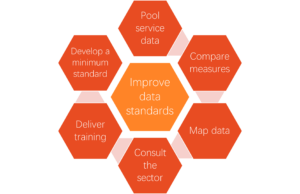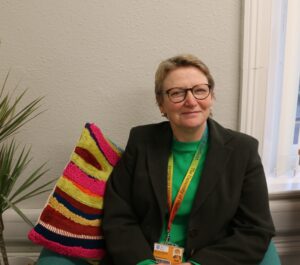Please complete the form below and one of our team will be in touch.
SCORE: Developing and delivering evidence-based practice for student mental health

The Student Counselling Outcomes Research and Evaluation (SCORE) consortium is a practice research network comprising UK university counselling services committed to facilitating research-informed counselling and mental health services for university students.
In this blog, we take a look at their vision and programme of research dedicated to understanding and improving student mental health outcomes.
What was the motivation for establishing SCORE?
The SCORE consortium comes from a longstanding vision to develop evidence to improve university
counselling and mental health services. It believes this is central to increasing access and good
outcomes for students. Improving the quality and guidance of data collection in student services are
core activities for the consortium. Their long-term vision is to create a shared routine outcomes
database and set of principles for implementing data-informed services for student mental health.
Who is SCORE and who do they work with?
SCORE was formally created in 2018 after several conversations fuelled by the observation that university counselling/mental health services continue to experience issues that have been voiced for decades – the challenge of using routine outcome measures regularly – ideally every session – so that they inform treatment decisions. This combination is what is known as routine outcome monitoring (ROM) with the aim of enhancing student mental health outcomes. The chair, Dr Afra Turner, explains that…
“SCORE offers a huge opportunity for its members to collaborate in research, which not only produces evidence-based information to innovate student counselling practice, but it is also a key stakeholder expectation of health care professionals ongoing development… these activities bring practitioners in line with the mission statement of their educational institutions”
Their members include practitioners, therapists, heads of service, researchers, and expert advisors. Critically, their work is practitioner-led and underpinned by the latest evidence and robust research methods. In the last 5-years, the consortium has worked with many institutions including Bangor University, Birkbeck University, Keele University, Kings’ College London, Leeds Trinity University, University of Bradford, University of Cambridge, University College London, University of Sheffield, University of Oxford, and University of York.
The consortium is also funded by the British Association for Counselling and Psychotherapy (BACP) and the UK Council for Psychotherapy (UKCP) both in the form of funding and in-kind contributions from Research staff who are actively involved with SCORE’s research.
Adopting and using ROM are central activities for the consortium and they believe it will become even more relevant as services increase their offer to include one-at-a-time or single-session interventions. By supporting services to use ROM, SCORE has established the feasibility of combining outcomes data from several services using different measures and computer systems.
Improving data quality is at the heart of their work, but this is informed by several satellite projects to:
How is SCORE improving data quality in Student Mental Health services?
Through these research activities, the SCORE consortium has been:
Profiling student mental health and counselling outcomes – In this paper, the SCORE consortium uses the shared routine outcomes dataset to show how university counselling improved students’ depression, anxiety, wellbeing, hostility, social anxiety, and academic distress.
Using rich data to inform student mental health services and policy – Here, rich data includes large and representative data sets as well as detailed accounts of lived experiences. Research members of the consortium, Dr Emma Broglia and Professor Michael Barkham, worked with Professor Bridgette Bewick to introduce a Special Issue in the Counselling and Psychotherapy Research Journal about student mental health.
Facilitating the use of ROM – the consortium acknowledges the difficulties to adopting routine outcome monitoring in university services and in this paper, they compile evidence and practitioner experiences about addressing common challenges. This paper is progress and will be available via their Twitter account once it’s published.
Developing a minimum data standard – in this research, the SCORE consortium consulted practitioners on their priorities for developing a standardised minimum dataset for use in university support services. The paper is in progress and is part of a larger project to develop a minimum data standard for university mental health services.
Demonstrating the impact of counselling on academic outcomes – here the SCORE consortium uses self-report data to explore the impact of counselling on students’ ability to study and their overall academic experience. The paper is under review and is part of a larger project to explore the potential impact of counselling on wider student factors.
Where can I learn more about SCORE?
Find out more through the SCORE consortium page and follow them on Twitter @ConsortiumScore for live updates
The deputy chair, Louise Knowles, explains how SCORE has impacted her service:
“Joining score has embedded, supported, and strengthened our service use of session-by-session routine outcomes. It has enabled us to encourage our wider institution to measure us not simply on our wait times but to understand the wider value our service has on students and reducing their academic distress.”
How can my service get involved?
Does your counselling/mental health service want help to adopt ROM?
Would you like your service to contribute data to the project?
Would you like to shape SCORE’s activities?
Then get in touch with Dr Emma Broglia (Project Manager, e.l.broglia@sheffield.ac.uk) or Dr Afra Turner (Chair, afra.turner@kcl.ac.uk).


